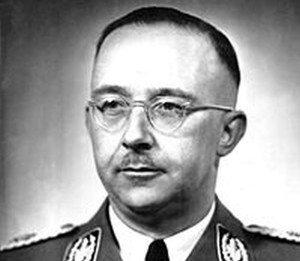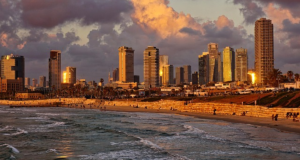By Heinrich Himmler
 Another Earth Day has come and gone, another Earth Day on which my part in making certain forests and fields in Eastern Europe greener has gone unrewarded. Does no one realize how much better the grass grows over the sites where the bodies of thousands of liquidated Jews fertilize it? I would expect at least some token acknowledgement of that achievement, even if only once a year. But no. On the one day the entire world sets aside to salute policies that promote thriving plant life and “green” technology, my greatest achievement in that regard goes unmentioned.
Another Earth Day has come and gone, another Earth Day on which my part in making certain forests and fields in Eastern Europe greener has gone unrewarded. Does no one realize how much better the grass grows over the sites where the bodies of thousands of liquidated Jews fertilize it? I would expect at least some token acknowledgement of that achievement, even if only once a year. But no. On the one day the entire world sets aside to salute policies that promote thriving plant life and “green” technology, my greatest achievement in that regard goes unmentioned.
I do not blame people for wanting to focus on the need to fix the problems facing humanity in terms of the environment, rather than on glory for past accomplishments; far from it. But a decent respect to the efforts and successes of the past would motivate others toward further attainment. Lithuania, Latvia, Poland, Ukraine, Belarus, Moldova, and a chunk of Russia are part of a longer list of locales where my men conducted mass executions of Jews, and those places bear witness to the horticultural and botanical benefits of having countless decaying corpses underneath. But you will hear nary a mention of this salient fact on Earth Day.
At Sobibor, while the SS oversaw demolition of the extermination facility to conceal evidence of the mass slaughter once it became clear we would lose the war, the sites where the gas chamber victims were buried still enjoy more verdant growth than surrounding areas. Visitors to the Paneriai Forest outside modern-day Vilnius can wonder at the benefit the trees have gained from the nourishment of eighty thousand Jewish corpses. Is it too much to ask that the Nazi contribution to ecology be recognized?
No movement is perfect; we recognize that. One can quibble with the use of specially modified combustion engines to produce the fumes that killed at Sobibor, Chelmno, Belzec, and Treblinka. One can object to the widespread reliance on trucks and coal-burning trains to transport the condemned to the massacre sites. It makes sense to question the environmental impact. carbon-emissions-wise, of the crematoria, and the open pits in which copses were burned once it became necessary to cover up the atrocities. But by the end of the war, we had internalized our environmental lessons, and marched the camp inmates on foot toward Germany. Anyone who refused to walk would be killed on the spot, their bodies decaying naturally along the road.
That, and the contribution to lush growth of nature, should also be recognized. Maybe next Earth Day. Hope no one ever forgets.
Please support our work through Patreon.



